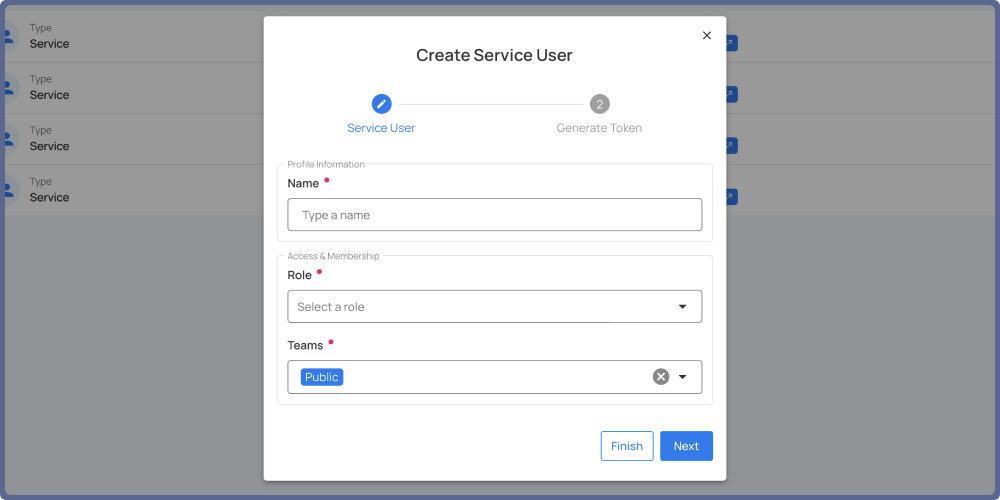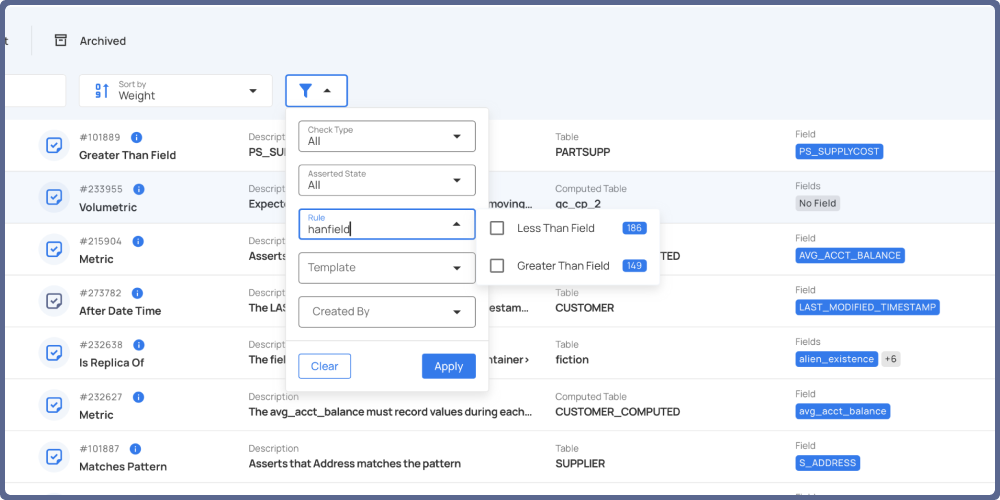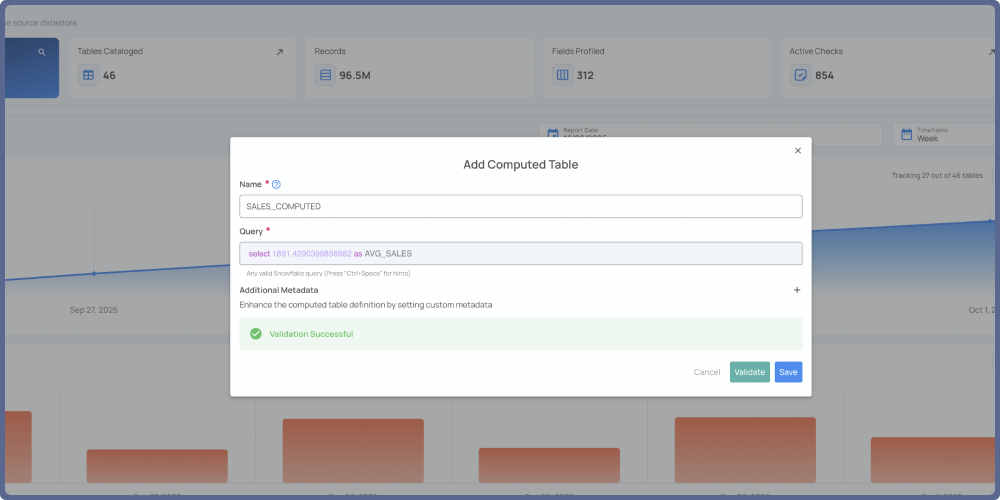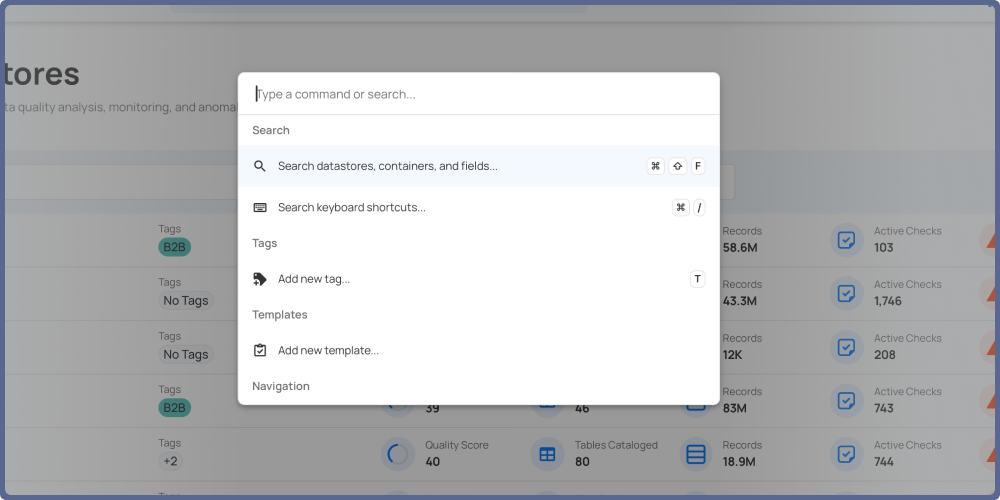These notes catch up with several releases since our last published update on 2025.10.15 and are current as of the 2025.11.6 version of the platform.
Introducing Service Users and Enhanced Token Management
You can now create dedicated Service User accounts for API integrations with automatic token generation, keeping service credentials separate from personal accounts. The redesigned Tokens page features a tabbed layout separating Personal Tokens and Service Tokens with improved search, while enhanced token generation lets you download tokens as files, get clearer copy feedback, and generate tokens directly from the user settings dropdown.
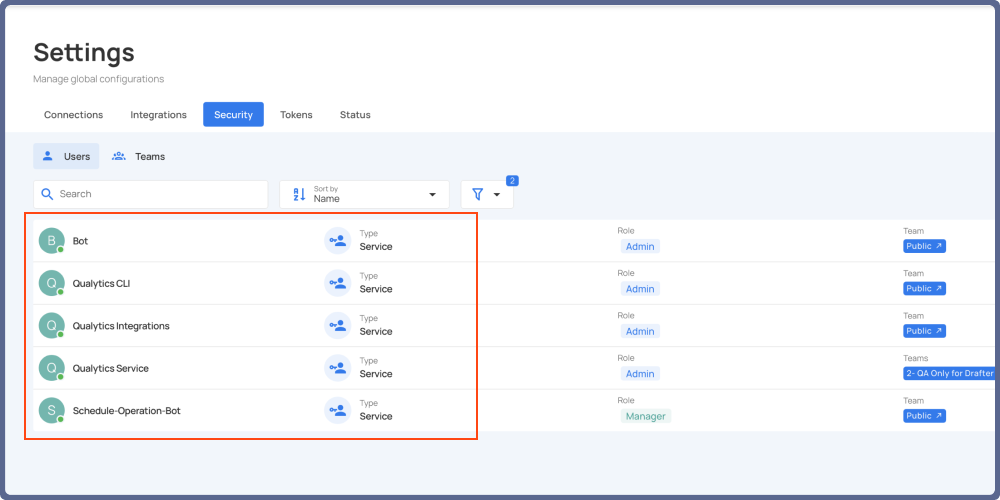
Historical Settings View for Flow Executions
You can now view the exact configuration used during flow executions, with each action’s settings preserved for accurate historical review and troubleshooting. Actions in the flow execution view are now clickable, letting you inspect their historical configuration details and understand precisely how your flows were configured at the time they ran.
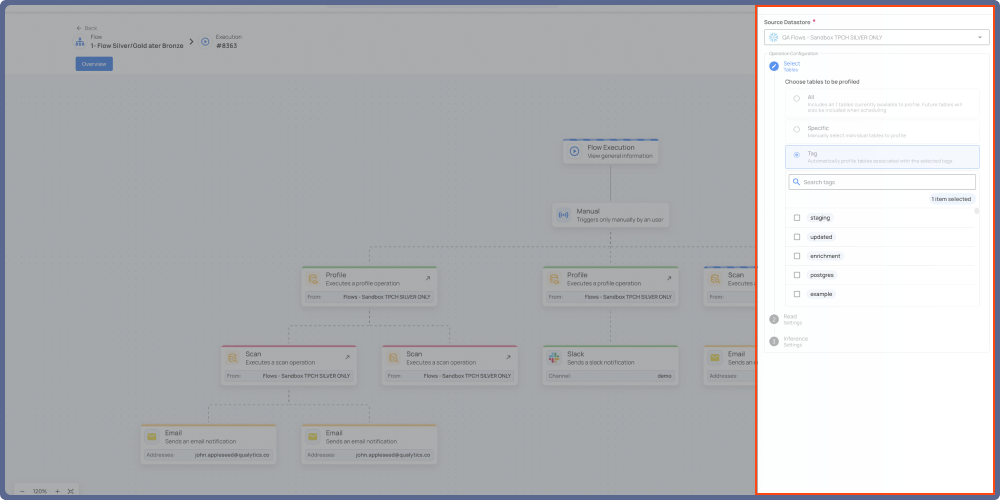
New Discarded Status for Anomalies
It’s now possible to mark anomalies as Discarded when they’re no longer relevant, providing a clear option that doesn’t imply resolution or error. Additionally, it’s now possible to reactivate acknowledged anomalies, offering more flexibility in managing anomaly lifecycles.
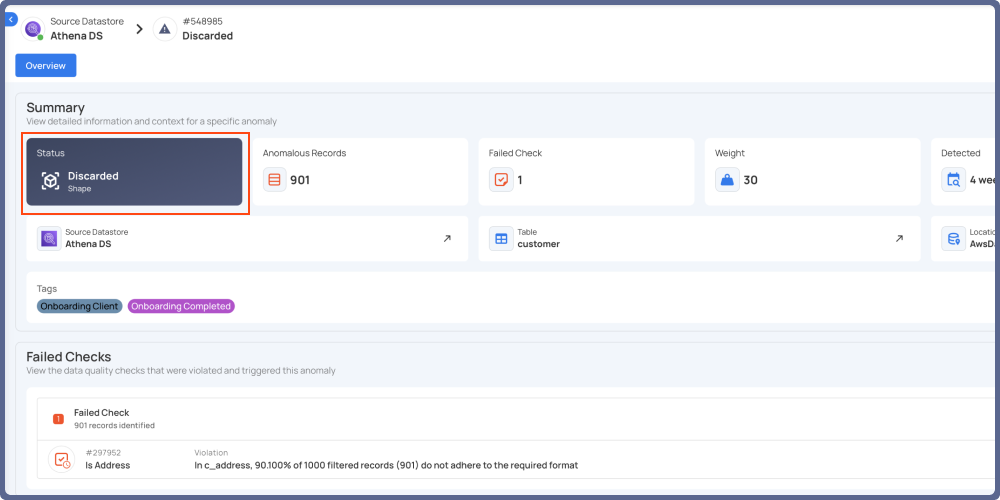
General Fixes and Improvements
Fixes (2)
- Corrected issue where operation status remained unchanged after completion in container activity displays.
- Resolved webhook integration issues for Microsoft Teams and Slack that prevented interactive features from working properly.
Improvements (1)
- Improved computed table creation for SQL Server, Oracle, and Redshift to add autocomplete suggestions to display table names with schema prefixes for these JDBC datastores.
As usual, our User Guide and accompanying Change Log captures more details about this release.
